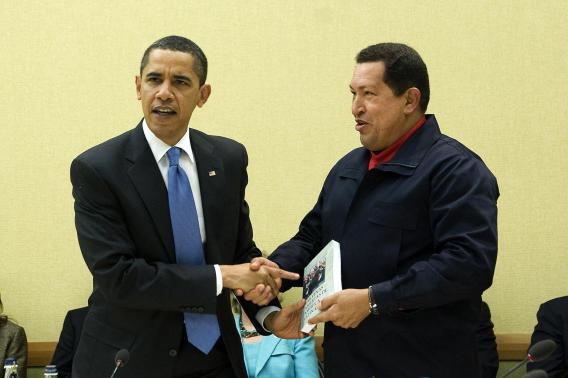Hugo Chávez, Venezuela’s president until his death yesterday, loved to read. So much so that he attributed his turn to socialism, in 2005, to the French classic Les Misérables. In a New Yorker obituary, Jon Lee Anderson, who met him several times, recalls enquiring about his political evolution. “I asked him why, so late in the day, he had decided to adopt socialism,” Anderson writes. “He acknowledged that he had come to it late, long after most of the world had abandoned it, but said that it had clicked for him after he had read Victor Hugo’s epic novel Les Misérables. That, and listening to Fidel [Castro].”
In fact, the “Comandante,” as his followers called him, spent a great deal of time quoting and analyzing Hugo’s social novel, the story of the wretched of France—Cosette, the orphan, Fantine, the prostitute, Jean Valjean, the well-intended convict—at the beginning of the 19th century. Back then, Chávez would argue, France was very similar to today’s Venezuela—and even to Latin America as a whole. That’s what he explained during a Parisian press conference, in 2007. “You want to meet Jean Valjean?” he asked the crowd of reporters. “Go to Latin America. There are many Jean Valjeans in Latin America. Many: I know some. You want to know Fantine? There are many Fantines in Latin America—and in Africa too. You want to know little Cosette and all the others… you want to know Marius? They’re all down there in Latin America.”
Praising Hugo’s novel was a way for Chávez to show his social conscience, not only in front of the French but also before the Venezuelan masses he claimed to educate. He often evoked the book to defend his policies, reminding the public that his government was devoted to the lower classes, “those who spent much of their life in total misery, like Victor Hugo would say,” as he put it in a 2005 speech.
Yet Chávez’s literary legacy, like the rest of his governing style, did not come without criticism. Under his rule, book clubs became a political statement. The man who once handed Barack Obama a copy of The Open Veins of Latin America, a book by Eduardo Galeano that details how Latin countries were exploited by Europe and later the United States, offered very specific book endorsements. His “Revolutionary Reading Plan,” a program that mainly involved giant book giveaways and a list of government-recommended texts, was denounced as a form of indoctrination by the country’s opposition.
Among the Chavista-approved books that quickly filled Venezuela’s libraries were, unsurprisingly, Karl Marx’s Communist Manifesto and, less predictably, Miguel de Cervantes’s Don Quixote, a novel that he believed could “feed us with a fighting spirit and the will to fix the world” (along with Les Misérables, of course). Those works were chosen to “strengthen 21st-century socialism.” The government agencies in charge argued that they were not an arm of the thought police. “What we’re doing is putting books within everybody’s reach, including children’s literature with absolutely no political content,” said Edgar Roa, who was in charge of the giveaways. “Or Les Misérables by Victor Hugo which can be interpreted in many different ways depending on your political colors,” he added.
But the “book squadrons” that patrolled public areas encouraging Venezuelans to read seemed to hinder the educational message behind said book plan, and looked a bit like something out of George Orwell’s 1984 (a novel that did not make it onto Chávez’s list). As the BBC reported, “Each squadron wears a different colour to identify their type of book. For example, the red team promotes autobiographies while the black team discusses books on ‘militant resistance.’ ”
As far as Hugo’s work is concerned, Chávez may have missed the fact that the French author wrote Les Misérables in part during his political exile, when he was protesting against Napoleon III’s autocratic leadership. Some of his other works, like the book of satirical poems Les Châtiments, are highly critical of authoritarian governments. As far I can tell, Chávez never read those poems.
